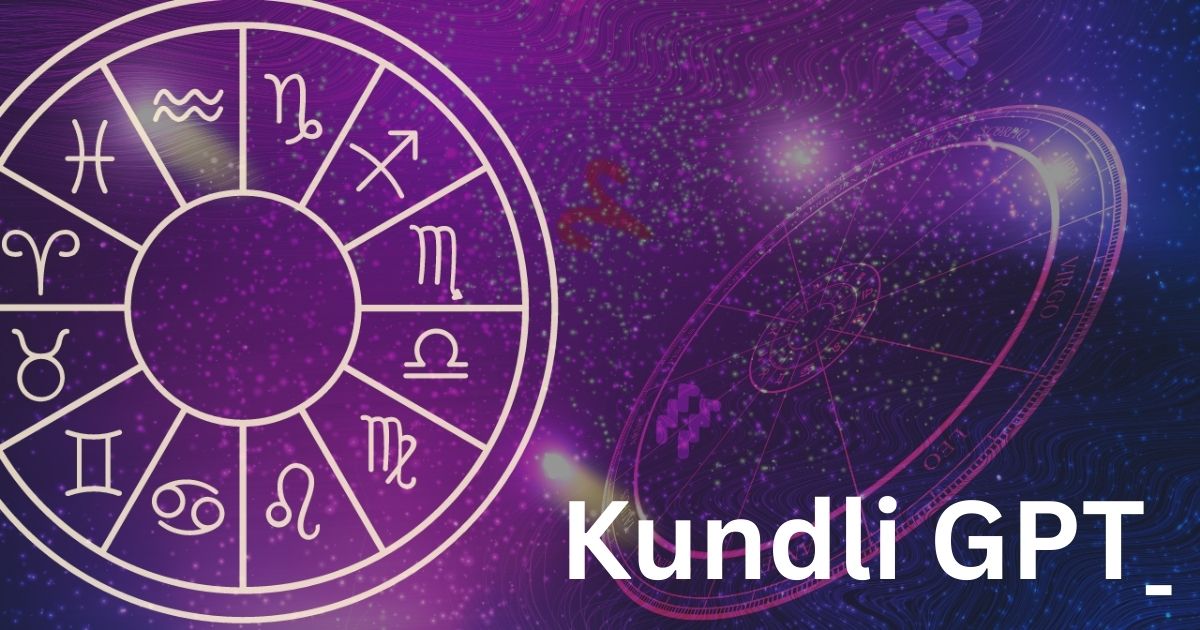Kundli GPT is a fascinating mix of astrology and AI that has become a famous AI innovation. Kundli GPT is an AI-powered system that uses a person’s birth chart, or Kundli, to make personalized astrology predictions and recommendations. Even though it can give you interesting views and make your life easier, it’s important to look at the bad things it could do as well. Artificial intelligence (AI) has become a part of almost every part of human life in this age of technological progress.
In Vedic astrology, Kundli, which is also called a birth chart, is a picture of where the stars and planets were when a person was born. It is thought to hold important knowledge about a person’s personality, life path, and what will happen in the future. Astrologers traditionally read Kundlis to give advice and make predictions. Kundli GPT, on the other hand, uses AI to simplify this process, so more people can use it.
Kundli GPT: The Advantages
Accessibility and Convenience:
Kundli GPT is available 24/7, allowing users to generate their birth charts and receive astrological insights at any time. It eliminates the need for physical visits or appointments, making astrology accessible to a global audience.
Speed and Efficiency:
Kundli GPT can generate birth charts and provide interpretations within seconds, significantly reducing the time required for manual calculations. Users can receive astrological insights almost instantly, making it a valuable tool for quick decisions.
Consistency and Objectivity:
Kundli GPT ensures consistency in interpretations, as it follows predefined algorithms and does not rely on human subjectivity. It provides objective insights based on celestial positions, free from personal biases or influences.
Educational Resource:
Kundli GPT often includes explanations of astrological concepts and terminology, making it a valuable learning resource for those interested in astrology. Users can deepen their understanding of astrology and its principles through the information provided.
Accessibility:
One of the best things about Kundli GPT is that it is easy to use. Anyone with access to the internet can see their own Kundli and get astrological information. This makes it easier for people from all walks of life to learn about this old knowledge.
Convenience:
You don’t have to go to an astrologer in person or spend hours figuring out your birth chart by hand if you use Kundli GPT. The AI system makes your Kundli quickly and gives you ideas, saving you time and work.
Personalized Guidance:
Kundli GPT offers personalized advice and predictions based on your unique birth chart. It looks at where the sun, moon, planets, and other celestial things were when you were born and gives you information that is specific to you.
Learning Tool:
Kundli GPT is a great way to learn about astrology if you are interested in it. It explains astrology ideas and terms, making it easier for people to understand their birth charts and what they mean.
Human Astrologers: The Strengths
Personalization and Intuition:
Human astrologers add a personal touch to readings because they take into account each person’s unique life events and quirks.
They can use their intuition and empathy to help them figure out what it means, which gives them a deeper and more compassionate knowledge.
Complex Interpretations:
Astrologers on Earth are very good at reading complicated birth charts that include many astrological aspects, transits, and progressions.
They can give in-depth analysis and advice for certain questions or events in life.
Contextual Insights:
Human astrologers can give advice based on the bigger picture of a person’s life, taking outside factors and life events into account.
They can give advice that is useful and can be changed as things change.
Consult With Best Astrologer Near You.
Emotional Support:
Human astrologers can offer emotional support and encouragement to people going through hard times. They can also help people deal with the uncertainties of life in a caring way.
They can help people feel connected and understood in a way that AI might not be able to do.
Negative Effects of Kundli GPT
Overdependence on Technology:
One problem with Kundli GPT is that people tend to rely too much on technology when making important life choices. If you only listen to astrological advice made by AI, you might lose your sense of personal duty and your ability to think critically.
Misinterpretations:
AI programs are made to give accurate interpretations, but they may still get complicated astrological aspects wrong or not take into account the subtleties of each person’s experience. AI-generated advice can lead to bad choices if you just take it at face value.
Emotional Impact:
When Kundli GPT users get bad predictions or advice, it can have a big effect on how they feel. When people think that AI-based plans are the key to their future, they may feel anxious, stressed out, or scared. Astrology, including Kundli GPT, has been attacked for making the same assumptions about people based on their zodiac signs and birth charts. Astrological knowledge can cause people to limit their potential or make biased decisions, which can slow down their own growth and the progress of society as a whole.
Concerns about privacy:
To make a Kundli, you often have to give personal details like your birth date, time, and place. There may be privacy issues about how the platforms that offer Kundli GPT services handle and store this sensitive data.
Kundli GPT is an interesting mix of technology and astrology. It makes astrological information easy to find and easy to use. But it’s important to approach AI with a critical mind and not blindly trust the statements it makes. Careful thought should be given to the possible bad effects, like becoming too dependent on technology and supporting stereotypes. In the end, Kundli GPT can be a helpful tool for self-reflection and direction, but it shouldn’t be used as the only way to make decisions. Instead, it should be used as part of a larger decision-making process.

